
Wikimedia Commons
PROVO, Ut. — Want to get ahead in this world? Work lots of extra hours — even nights and weekends — experts say, and it will all be worth your while.
“It’s easy to forget what’s most important in life,” says Bill Loney, a certified life coach who hasn’t quite made it in life yet. “Family, friends, and social activities that can often inspire and enrich the life of an individual… these are all distractions in getting more work done,” he adds.
Emma Royds, who hasn’t stopped looking at her smartphone every five minutes for three straight years, councils that most people actually die wishing they had spent more time — not less — working. “People never regret working too much,” she says. “My neighbor opted to do adventurous, social, and fitness-related activities with family and friends in his spare time.
“Now 80, he told me recently he really wishes he would have spent more time on TPS cover sheets, obsessively trying to turn his company into the next big thing, and reading email during every waking hour of his life. It’s kind of sad, really.” Continue reading…
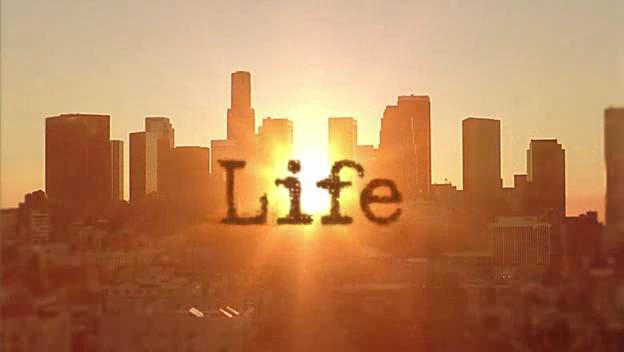
Here’s some scientifically tabulated advice. They’re called the top five regrets of the dying. In short, a nurse that took care of lots of people on their deathbeds asked and recorded their most common regrets. They are as follows, along with my pithy commentary: Continue reading…

This is a fantastic long-read by Louis Menand about how baseball players turned athletes into the sponsored celebrities we know them as today. “He signed his first client in 1921. And that client turned out to be the greatest sports figure of his day, or possibly, with the exception of Muhammad Ali, of any day: Babe Ruth. Ruth didn’t just do what every ballplayer did but better. On the field and off, he was in a class by himself.”

Knowing the 5 love languages has greatly improved my marriage and other relationships. Since first being introduced to it many years ago, my wife and I have significantly enhanced our communication.
I didn’t learn about the 6 love busters until last night, however, while attending a local charity meeting. They are as follows: Continue reading…

Nina Matthews
If you insist on setting 5, 10, or 30 year goals in life, you’re gonna have a bad time.
The reason: Long-terms goals are mostly arbitrary and futile. Since life is full of surprise, setting specific expectations for it largely results in a feeling of failure.
In other words, “Don’t aim at success,” writes Viktor Frankl in his seminal Man’s Search For Meaning. “The more you aim at it and make it a target, the more you are going to miss it.”
This has certainly been the case in my life. Continue reading…
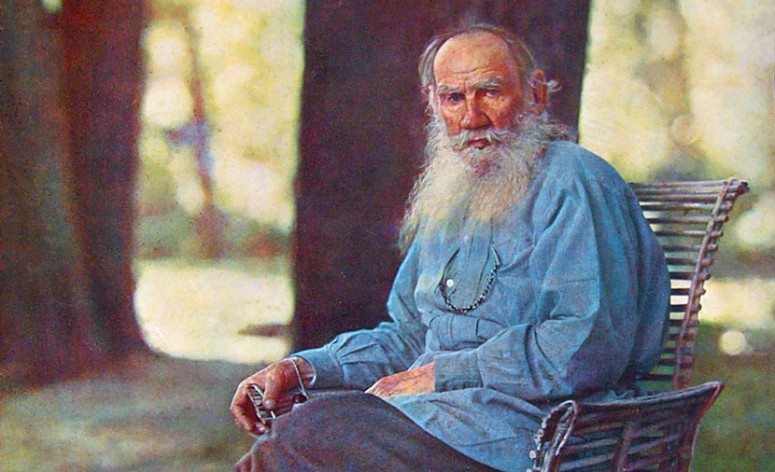
Leo Tolstoy courtesy Wikimedia Commons
This issue of the Offline Newsletter is brought to you by Leo Tolstoy.
It once occurred to a certain king, that if he always knew the right time to begin everything; if he knew who were the right people to listen to, and whom to avoid; and, above all, if he always knew what was the most important thing to do, he would never fail in anything he might undertake.
And this thought having occurred to him, he had it proclaimed throughout his kingdom that he would give a great reward to any one who would teach him what was the right time for every action, and who were the most necessary people, and how he might know what was the most important thing to do.
Several learned men came to the King, but they all answered his questions differently (e.g. advance planning, multi-tasking, mentoring, high-ranking people, science, warfare, religion).
All the answers being different, the King agreed with none of them, and gave the reward to none. But still wishing to find the right answers to his questions, he decided to consult a hermit, widely renowned for his wisdom. Continue reading…

Courtesy Shutterstock
I start many of my conversations with the following: “I read an interesting article recently…” This week my twelve-year old daughter asked, “Dad, where do you read all these articles you’re talking about?”
Good question. In essence, she was asking how I stay informed and uncover a lot of interesting information and in-depth news. This is what I told her:
- I read three daily newspapers. They are: USA Today (for national news) and KSL and Daily Herald (for local news). I only scan the homepages and click on headlines that interest me. I sometimes skip weekends and weekdays on extra busy days. All told, I might spend 10-20 minutes reading these. I rarely read politics.
- I read Digg’s daily long reads. These are editor picks of some of the best long-form journalism and magazine articles on the web, from a variety of outlets. I stockpile them in several open tabs on my phone and read them throughout the week, spending a few hours doing so.
- I subscribe to weekly long read newsletters. They are the Weekly Top 5 Longreads and Longform’s Pick of The Week. Like Digg Longreads, I stockpile these and spend a few hours reading them each week.
On top of that, I read about 8-10 books a year, mostly non-fiction and biographies.
Fun fact: I used to spend a lot more time staying informed and reading dozens of websites and online newspapers in my twenties but have found since my thirties that the added distraction didn’t justify the amount of time I was spending. Since then, I’ve been a lot more productive and happy while still staying just as informed on the low-caloric, but nutrient-rich diet of the above.
Hope that helps.

Credit: Blake Snow
My wife and I believe the world is inherently good and we want to indoctrinate our children to think the same. Not by ignoring society’s seedy underbelly. But with measurable evidence such as this that overwhelmingly proves the world is getting better and better.
To that end, my wife shared the following quote with our children and I over breakfast recently: “Feed your faith and your fear will starve.” In other words, people who are afraid are usually consumed by doubt.
But in my experience, we can replace that fear and doubt with hope and love by doing the following: Continue reading…
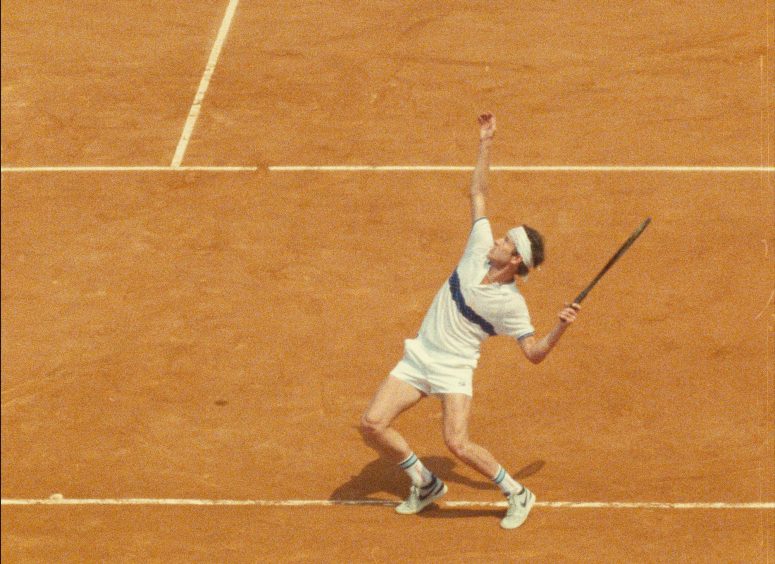
Years ago I read one of the greatest sports biographies ever: You Cannot Be Serious by John McEnroe. You should read it.
Last week I watched one of the best sports documentaries I’ve ever seen: John McEnroe: In The Realm of Perfection.
Now before you write me off as a McEnroe fanboy, which I unabashedly am, please know that the latter is a French documentary about a controversial American tennis brat in his prime.
Shot mostly in slow motion, it is a quirky and mesmerizing film with a powerful finish that convincingly argues that a tennis match is good cinema, and that McEnroe was arguably the sports best “directors” of tennis cinema.
Four stars out of five.
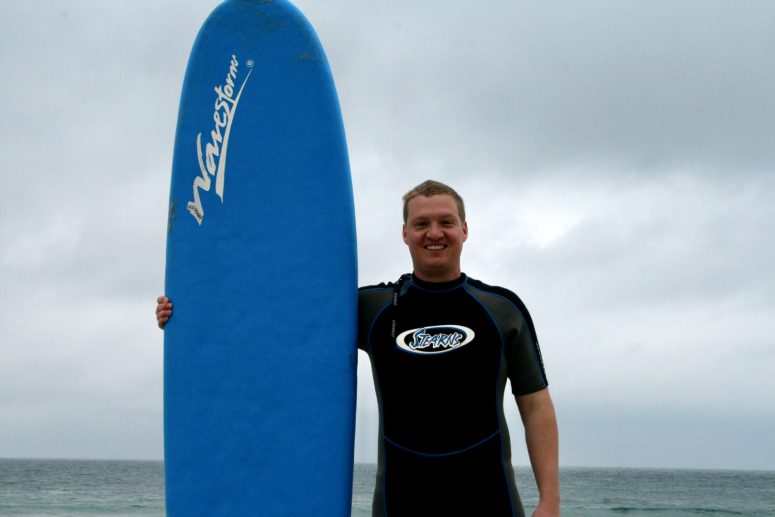
My first time surfing (in San Diego): What I looked like days after quitting Facebook
10 years ago to the day, I quit Facebook. At the time I feared I might be committing social suicide. Today, I can happily report that didn’t happen.
Since quitting the popular boomer hangout, I’ve limited the number of work and out of office distractions I encounter. I no longer feel the desire to “check in” online at every waking hour. It takes me longer to discover new bands. And I don’t have to consciously decide or distinguish friends from colleagues, associates, and nobodies. I just let them happen naturally now; unannounced and always evolving.
Continue reading…
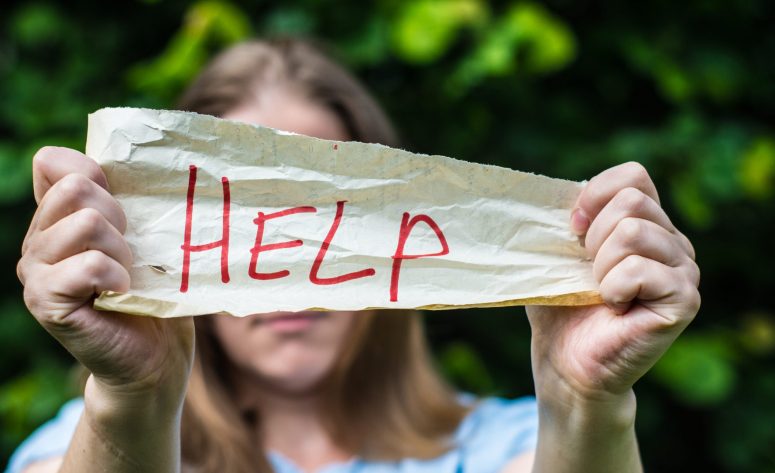
Courtesy Shutterstock
My daughter taught, if not reminded, me of an important lesson last week.
While driving home after dropping off one of her applications, I saw a homeless woman on the corner. At first glance, she looked like she might have been high or intoxicated, so I quickly drove past. Upon second thought, I turned to my kiddo and asked, “Do you think we should give our blessing bags (that we keep in the car) to homeless people that look high or might not benefit as much from them?” After a moment, Sadie plainly answered, “Dad, I don’t think we should ever judge a book by their cover.”
Of course she was right, so I quickly responded by turning around and driving back to the spot where the woman was standing. I handed Sadie a bag from the back of the truck. She rolled down the window to the approaching woman. “Here you go,” the former said to the latter.
It was dark outside but the street lamp was bright enough to reveal a woman with lively eyes, a completely sober demeanor, and a bright, appreciative smile. I felt warm inside and was proud of the example that my 14 year old had shown.
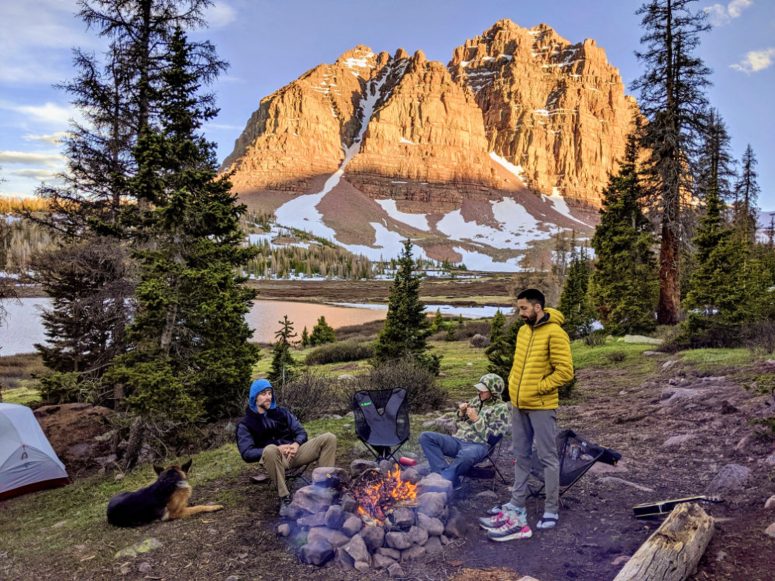
Credit: Blake Snow
This wasn’t the first time I’ve written about my favorite, lesser-known Utah outdoors. And it probably won’t be the last. Hope you enjoy.
Utah has some of the most beautiful national parks in the United States, if not North America as a whole. Because of this, numerous state parks and other protected lands are often forgotten; many would likely have national park status were they not located somewhere that already has five. Read on to learn about one of Utah’s best kept secrets. Continue reading on Lonely Planet…
See also: Which Utah park is right for you?

Courtesy Shutterstock
Because I have a lot of extra free time in a partially paused world, I decided to re-listen to the entire Beatles catalog this weekend (well over 10 hours worth!) to determine my favorite albums.
Although I regularly feasted on The Fab Four in high school, college, and into my late twenties, I haven’t listened to their music much in the last decade. Not that I no longer like or respect it. Only that I probably overplayed it to the point of boredom.
After my weekend binge, however, I reconfirmed my belief that The Beatles are the greatest pop band ever—ahead of only Elvis and Michael Jackson in terms of the shear number of songs I enjoy. Either way, this is what I learned from my quarantine experiment: Continue reading…
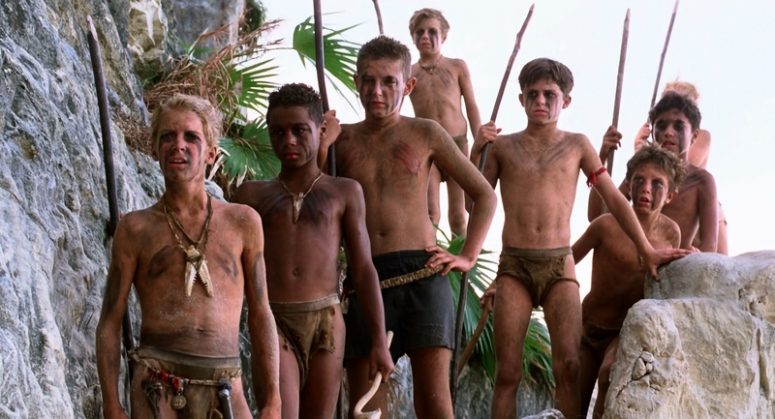
Courtesy Columbia Pictures
Lord of the Flies by EL Epstein was one of my favorite books I read in my adolescence. It’s shocking, sad, and discouraging.
It’s also entirely made up and based on the fear-mongering belief that humans will basically eat each other when the going gets rough. Many humans often think like that in times of uncertainty—global quarantines very much included.
But “it’s time we told a different kind of story,” argues Rutger Bregman, who researched the reality of shipwrecked isolation and found that the vast majority of evidence suggests that adolescent boys would act very differently. In fact, they would largely cooperate and thrive instead of succumbing to war, murder, and anarchy.
“Readers were still skeptical,” Bregman reported, however. So he searched high and low for a real-life example of what shipwrecked boys might actually do. After sleuthing on the internet, he discovered a story of six boys from Tonga in 1965 who were shipwrecked on a Polynesian island for 15 months. He went and visited one of the survivors and heard a detailed and inspiring true story. The short of it: when the boys were finally rescued by a passing ship on September 11, 1966, a physician was “astonished by their mulled physiques” and overall health.
“The real Lord of the Flies is a tale of friendship and loyalty,” Bregman concludes. “One that illustrates how much stronger we are if we can lean on each other.”
Need more proof? Look how far humanity has come over the last 2000, 200, 100, or even 10 years! If the haters, pessimists, and naysayers were actually right, we would have all died along time ago. 💪

You can listen to the 17 minute episode here. Thanks for having me, Jordan.

Courtesy Shutterstock
Thanks for reading and sharing any of the below:
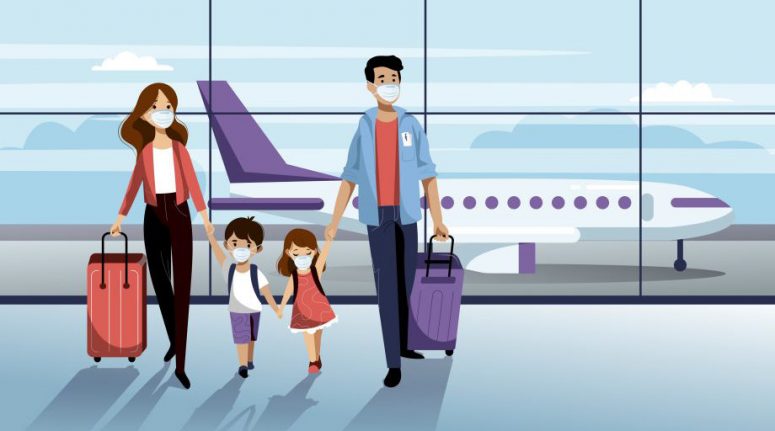
Courtesy Shutterstock
My latest for Lonely Planet: If you’re hoping that travel will return to normal in 2020, don’t hold your breath, experts say. That said, you will likely be able to vacation on a reduced basis later this year, if not by summer, some believe. Although not ideal, that’s better than the “do not travel” orders the world has endured since March.
So what might a travel reopening look like?
“The travel industry is a huge part of the economic health of so many countries, so I imagine by the end of the summer tourism will begin again,” says Jorge Branco, director of the World Travelers Association. “I don’t think schedules will be as they were pre-coronavirus right away, but there will be options available to begin the transition.”
In other words, we won’t hit the “on” switch as quickly as we hit the “off” switch. Rather, governments, health experts and tourism providers will metaphorically install “dimmers” to gradually increase lifestyles and travel to normal levels.
Continue reading on Lonely Planet…

I wish coronavirus never happened. Given its uncertainty, I also wish society would have partially distanced like Sweden did instead of hitting the giant “off” switch on social life or “save hospital capacities at all costs” approach the rest of us took.
It’s a fearful world we live in.
That said, I’ve been able to take the lemons, if you will, to make some sweet lemonade recently. Although I was an angry, stressed-out wreck the first two weeks of quarantine, I’ve been able to transition to first coping and eventually thriving over the last month.
Here’s how the unwelcome outbreak and draconian quarantine have actually changed my life for the better: Continue reading…
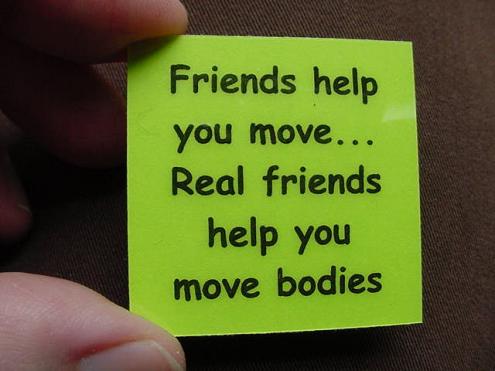
Lindsey and I have been blessed with many genuine friends — ones that make us laugh, can celebrate our accomplishments, and extend considerate help.
This week, while visiting one such family, we discovered that they’ve been dealing with some “friends” that reputedly became envious and judgmental of our friends’ recent good fortune. This saddened me. Time is too precious to waste on such superficial friends.
With that in mind, here’s my proven guide to ditching and avoiding fake friends, so you can better enjoy your days in the sun. Continue reading…

Courtesy lassedesignen/Shutterstock
I’m convinced there are two types of creators in this world: genius ones and everybody else. By my estimation, 99% of us fall into the latter category, myself very much included. As such, we must play by different rules. Continue reading…

I took this picture of my front yard this week—one of the prettiest springs I’ve seen in years. Thankfully quarantines didn’t cancel that.
Life goes on. 🌻
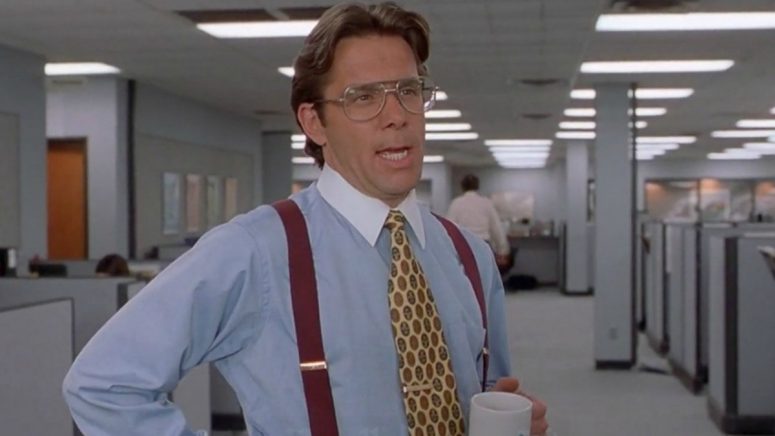
I graduated from college at a time when “Casual Fridays” were a thing. This was before Silicon Valley established the “casual everydays” that most offices now enjoy—hoodies, jeans, t-shirts, and even activewear and joggers in some cases.
As a senior, I was invited to interview with a large national company that was coming to campus. I wasn’t particularly fond of the company, but I was flattered they had reviewed my resume and wanted to speak to me (after graduating, I would forgo employment altogether to work for myself, but that’s another story).
When the interview time came, I entered a designated office on campus and met a recruiter in his mid 40s under drab fluorescent lighting. He didn’t look particularly happy. In fact, he looked rather miserable. Obviously would rather be home with his family than interviewing some undergrad like me in some far away city. Continue reading…

The following description by Glenn Colehamer of California is as fascinating as it is relevant.
I was a college junior at the dawn of the 1970’s. Here’s what I remember during that remarkable fascinating decade, both great and not so great:
Cigarette butts on the ground everywhere people went. Ash trays everywhere.
Peace symbols as graffiti everywhere you looked.
Long hair on men everywhere you looked.
Free sex, no AIDS, no herpes, no condoms. Antibiotics reliably cured most venereal diseases.
Youthful baby boomers everywhere.
Muscle cars everywhere. VW bugs in your way everywhere. VW vans owned by hippies everywhere. Curtains covered all the side and rear windows. We knew why. Continue reading…
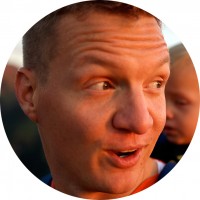 I’ve written thousands of articles since becoming a full time writer 15 years ago. But I’m especially proud of these:
I’ve written thousands of articles since becoming a full time writer 15 years ago. But I’m especially proud of these:
- Log Off, my first book
- My best feature stories
- My best travel columns
- My best personal blogs
- My favorite people in the world
Thanks for reading. I wouldn’t be a writer if it wasn’t for readers.

With a lot fewer distractions in quarantine, I’ve recorded more music in the last two weeks than I have in years. I even started playing with a local guitarist in the hopes of starting a band. 🤘
Until then, I wanted to share some of the things I’ve recorded recently, in addition to some of my all-time favorite recordings. They are as follows (click to play):
- “Girlfriends” (The Academic cover). I love this pop song and just had to record it. I sang and played the guitars and tambourine.
- “Another One” (Mac DeMarco cover). I ripped the piano chords from YouTube and sung the lyrics to one of my favorite songs written by my new favorite artist.
- “Internet” (Post Malone cover). I played guitar and sang a mostly clean version of this song, with exception to one emotional outburst that I just had to sing in this crazy world right now.
- “The Promise” (When in Rome cover). I played piano, guitar, and sang both harmonies. This is one of my all-time favorite ’80s songs. I don’t love the piano tone, but I’m proud of the result.
- “Different” (original). A song I wrote, sung, and played while living in Brazil. It’s about changing for the better.
- The God of Abraham Praise. If you’re looking for a spiritual track, try this one. I sang the choir parts over a radical organ I found on YouTube. This is one of my favorite hymns, which was converted from an old Jewish song in the 1700s.
- “1901” (Phoenix cover). I played guitar and sung one of my favorite upbeat alternative songs.
- “Last Time” (original song). An early aught pop song I wrote with my friend Dylan Denny. I sung, played drums, and lead guitar.
- “Best Foot Forward” (original song). Another upbeat song I produced and sung with my friend Dylan.
- “The Deepest Sleep Ever” (original instrumental). I’ve written and produced a lot of instrumental music over the years, and this is one of my absolute favorites.
- “Abstract Consensus” (original instrumental). Recorded in 2002 with over 75 samples, this is probably the best dance song I’ve ever written.
- “System Sound” (original song). Ever wanted to hear me rap, albeit not very good? Well now’s your chance! I wrote, produced, and rapped this song in the summer of 2001.
- “Stay” (U2 cover). Probably one of the best recordings I’ve ever made. I played guitar and sang.

It only took me a few minutes to fall 10,000 feet, but I didn’t really come down for another couple of hours. That’s the best way to describe my first time skydiving. That and recognizing it as one of the greatest physiological sensations I’ve ever endeavored.
On a royal blue morning recently, I drove forty minutes south of my home to Skydive the Wasatch in Nephi, Utah. I was greeted by Andrew the drop manager, Jordan my instructor (or more accurately the person I’d strap my life to), and Joel the pilot.
Free snacks, a row of leather sofas, and caffeinated drinks lined the open hanger in an effort to ease or at least distract the nerves of would-be jumpers. Just outside, an old Cessna plane came to life to take a woman in her forties and her friend in her twenties on their first and second respective dives. While waiting for their quick return, I signed and initialed the longest waiver I’ve ever seen without reading a single line of legalese.
“Are you ready?” Jordan asked with a friendly smile. I honestly answered in the affirmative, and then he explained the safety and protocol procedures. “The whole experience takes about 25 minutes,” he said. “Twenty minutes to climb, around half of minute to free-fall, and three or four more to parachute down.” Continue reading…
 This is what old people talk about over lunch: how degenerate youth no longer use capitals and punctuation when writing. At least that’s what I did over lunch today with a few middle aged friends.
This is what old people talk about over lunch: how degenerate youth no longer use capitals and punctuation when writing. At least that’s what I did over lunch today with a few middle aged friends.
This is especially important to me because I’m in the business of selling clear writing. Having done so for many years, this much I know: the clearer you write, the better chance you have of avoiding confusion and getting what you want.
A few years ago, a recent college graduate and aspiring writer emailed me to ask for help in getting a job. He used no capitals, punctuation, paragraphs—let alone line breaks. It was just one huge blob of text. Continue reading…
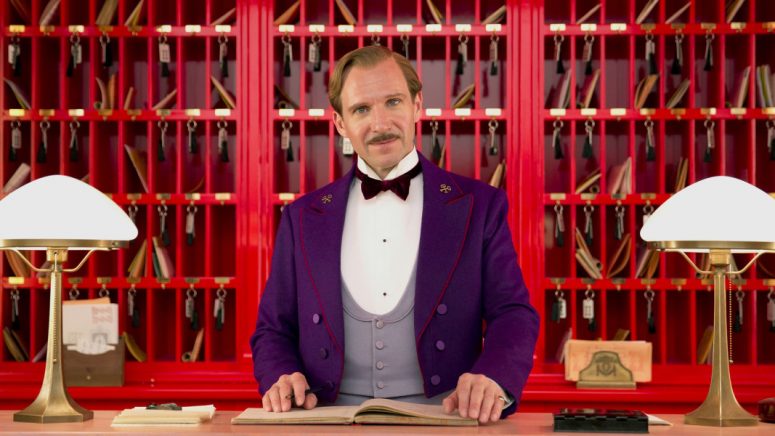
What do Indiana Jones, Little Miss Sunshine, Secret Life of Walter Mitty, Darjeeling Unlimited, and Endless Summer have in common? They’re among the very best feature films that make you want to go places. So before streaming your next great home movie, consider one of these first: Continue reading…

Photo: Blake Snow
I recently started reading The Nature Fix by Florence Williams.
In her introduction, Williams reports that most empirical evidence suggests there are four ingredients for happiness, namely feeling enmeshed in a community of healthy friendships (i.e. “it takes a village”), having your basic survival needs met, keeping your brain stimulated and engaged, and working for something that’s larger than yourself.
There’s increasing evidence, however, for a fifth ingredient, Williams argues: Regular outdoors, getting outside, or “forest bathing.”
I certainly won’t argue with any of those. Surrounding myself with healthy relationships, having my basic needs met, keeping my brain stimulated through learning and interesting work, volunteering, and staying outdoors has done the trick for me.
Easier said than done. But when you break it down like that, it also seems highly attainable.

Courtesy Shutterstock
What do the world’s greatest leaders have in common? What makes a great boss?
Stanford professor and management consultant Robert Sutton recently asked that question and presented his findings in an hour-long, information-packed lecture.
According to his research, this is what great leaders often do: Continue reading…

Courtesy Shutterstock
When the world first starting shutting down amid the coronavirus outbreak, I was angry. Angry with how the situation was being handled and frustrated by how quickly everything changed.
After the second week of widespread restrictions, I was grieving. I missed the sudden loss of lifestyle, normal working conditions, family routines, and exciting plans—almost all of it cancelled.
In this third week of quarantine, however, I’ve learned three important lessons that have allowed me to appropriately adjust and make the most of an unprecedented situation. They are as follows: Continue reading…

Courtesy Shutterstock
Some of my clients have recently asked how to address coronavirus uncertainty in their immediate writing and content marketing plans.
While I don’t have all the answers, these seem to be the most common approaches: Continue reading…
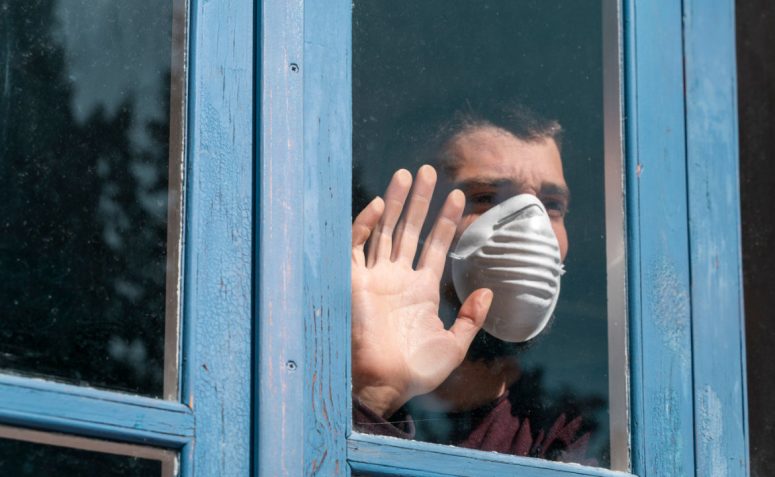
Courtesy Shutterstock
Some of the below are no longer relevant right now, due to coronavirus quarantines. But others still are, and I wanted to add them to my portfolio in any case.
Thanks for reading, bookmarking, or sharing any that you enjoy.
The following was a sermon I gave in 2018 to 50 juvenile detainees. I cried through most of it.

Courtesy Shutterstock
By a show of hands, who here believes in second chances? I believe each of us have several second chances in life. All of us do. And I’m here to tell you that if we want the most from our second chances, we must do two things: 1) seek forgiveness from God; and 2) forgive others instead of seeking revenge or succumbing to resentment—both of which will enslave us for as long as we let them.
This is easier said than done. But it can be done. Today I’d like to share five stories of people that have done just that in order to inspire each of us to do the same: Continue reading…
Below is excerpted from Americana by Hampton Sides, which I recently enjoyed reading.
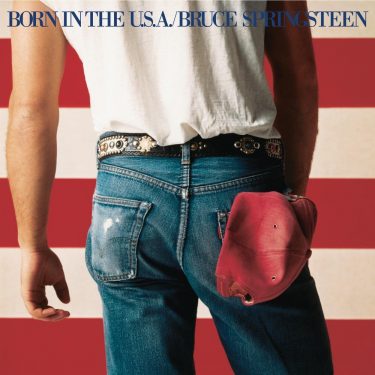 A few years ago, I was passing through Marrakech on my way to the Sahara for a magazine assignment. One afternoon, outside La Mamounia Hotel, I was accosted, as all tourists inevitably are, by a “guide.” He was an intense young Berber with penetrating eyes and a brisk stride, one of those canny creatures of the bazaar. He wore a slick black suit.
A few years ago, I was passing through Marrakech on my way to the Sahara for a magazine assignment. One afternoon, outside La Mamounia Hotel, I was accosted, as all tourists inevitably are, by a “guide.” He was an intense young Berber with penetrating eyes and a brisk stride, one of those canny creatures of the bazaar. He wore a slick black suit.
“Hello, American?” he said, instantly sizing me up.
”No, no American,” I replied and walked on as fast as I could. Not that I’m embarrassed by my nationality, but I’d been told the guides assume all Americans are loaded. Besides, I didn’t want a guide that day, and this guy really seemed like an operator.
He looked puzzled. “American, yes? You need guide for the souk. We buy rugs now.”
I shook my head vigorously and picked up my step, but he persisted. “British. German, yes? Canadian?” I could almost hear his brain racing.
“I am Finnish,” I said. Someone had told me this always throws the guides. Continue reading…
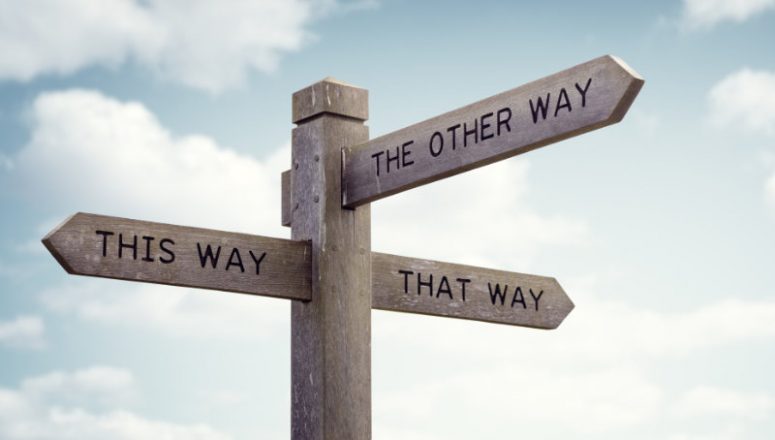
Courtesy Shutterstock
Over the last week, the world radically entered a health crisis mode. What was normal just a few days ago is no longer the case. In addition to school, office, sports, and recreation closures, many restaurants are even closing in some parts of the country. That can be a scary thing.
But it’s not all scary. We can still play music, congregate in tight groups, go outside, and carry on as best as possible. To help you do that, here are eight proven ways to overcome uncertainty, regardless of the source: Continue reading…
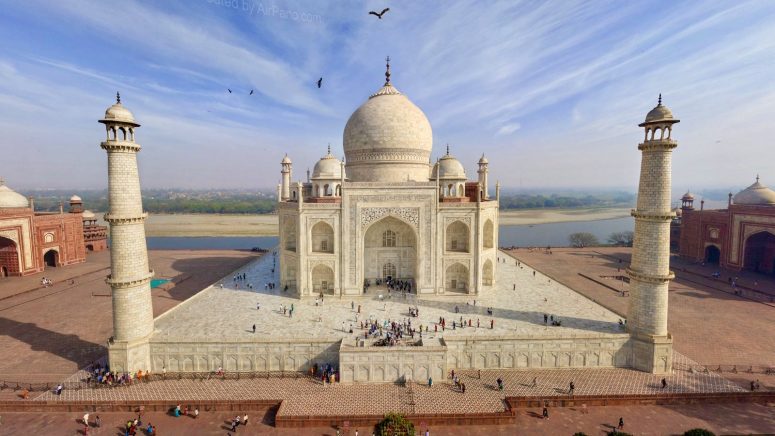
Courtesy AirPano
There is no replacement for seeing something with your own eyes. Let alone hearing, smelling, and feeling it with your own presence.
But despite coronavirus quarantines, there’s still something you can do about it. With the help of modern technology, there’s a lot you can do about it.
From seeing the seven wonders of the world and world-class museums, to exploring the great outdoors and National Parks on foot, these are the best virtual tours I found online in a story I wrote for Lonely Planet.
Hope you enjoy.

Stay safe out there, Internet.
 This week many world and local leaders hit the nuclear response button to a pervasive, flu-like virus that kills a lot of old people and around 10 times the number as the common flu, according to the latest figures.
This week many world and local leaders hit the nuclear response button to a pervasive, flu-like virus that kills a lot of old people and around 10 times the number as the common flu, according to the latest figures.
Dubbed “the coronavirus” (covid-19 to be scientific), roughly 92% of all infected age groups survive and fully recover. For those under 60, the survival rate jumps to over 99%. For those in their 70s and 80s, or those with respiratory or smoking conditions, the survival rate drops to 96% and 92% respectively. For comparison, the flu kills .1% of those infected on average.
Understandably, those “much higher than normal odds” are a scary concern for senior citizens like my parents who venture out in public. But depending on how optimistic you are, a 92-99.5% survival rate doesn’t warrant shutting down society for, as one megacity in China has done and the entire countries of Italy, France, Spain (and surely more) have already done.
In my opinion, those reactions are the nuclear option. A “flattening the curve” of infections at all costs option. In America, we’ve so far taken a hybrid approach, which is still an overreaction, in my risk-taking opinion. Although citizens are free to move about and go to a decreasing number of open stores (because there isn’t enough foot traffic to keep them all open), every public event, many businesses, most churches, and an increasing number of schools are closed to meetings.
To make matters worse, public officials haven’t explained an endgame or exit strategy for the first wave of 15-30 day closures. Because they don’t have one. This only causes more panic and uncertainty. Continue reading…

Courtesy Shutterstock
I wrote this for Lonely Planet today and hope it can lighten any travel restrictions.

Courtesy Shutterstock
This is a fascinating report by Time on cultural truth, incomplete science, better than nothing protection, and the cost of social distancing. “People look at me funny because I don’t wear a mask,” Chan says. “But I think the only thing that’s laughable is everyone buying into this excessive fear. People are being led by emotion, not science.”
PS—I’m grateful for public health officials and infectious disease doctors. Like vaccines, I believe they have our best interests in mind. What I’m not comfortable with is a nuclear social distancing response in reaction to a serious but still not that deadly virus (aka the vast majority of those infected by coronavirus live). It’s unfair to trump out a “flatten the curve at all costs” approach to something that doesn’t deserve such a dramatic response. Just because we could “flatten the curve” of 61,000 flu deaths last year with nuclear social distancing doesn’t mean we should. That’s why people are upset, scared, and confused. We can’t agree on the price to pay!
The following was updated and adopted from a recent hired-speech I gave to a group of 50 CEOs and partners at the headquarters of NEA, the world’s largest venture capital firm.
 Since 2005, I’ve written for half of the top 20 U.S. media and dozens of Fortune 100 companies as a seasoned writer-for-hire, content marketer, and best-selling author. From those experiences, this is what I know for sure: marketing is the way you let people know you exist. Content marketing is the ongoing explanation for why they should care.
Since 2005, I’ve written for half of the top 20 U.S. media and dozens of Fortune 100 companies as a seasoned writer-for-hire, content marketer, and best-selling author. From those experiences, this is what I know for sure: marketing is the way you let people know you exist. Content marketing is the ongoing explanation for why they should care.
As a discipline, branded journalism, thought leadership, and executive editorial is important, because it allows companies to persuade highly-informed buyers in an increasingly noisy world. Not only is it the fastest growing marketing budget, it’s also the most effective for satisfying search demand, engaging audiences, and satiating a buyer’s need to read and inform themselves before making a purchase.
What surprises people most that engage me? Here are the top five: Continue reading…
 The following was written by Dr. Abdu Sharkawy after a global wave of premature event cancelations, travel restrictions, and economic collapse:
The following was written by Dr. Abdu Sharkawy after a global wave of premature event cancelations, travel restrictions, and economic collapse:
I’m a doctor and an Infectious Diseases Specialist. I’ve been at this for more than 20 years seeing sick patients on a daily basis. I have worked in inner city hospitals and in the poorest slums of Africa. HIV-AIDS, Hepatitis,TB, SARS, Measles, Shingles, Whooping cough, Diphtheria…there is little I haven’t been exposed to in my profession. And with notable exception of SARS, very little has left me feeling vulnerable, overwhelmed or downright scared.
I am not scared of Covid-19. I am concerned about the implications of a novel infectious agent that has spread the world over and continues to find new footholds in different soil. I am rightly concerned for the welfare of those who are elderly, in frail health or disenfranchised who stand to suffer mostly, and disproportionately, at the hands of this new scourge. But I am not scared of Covid-19. Continue reading…
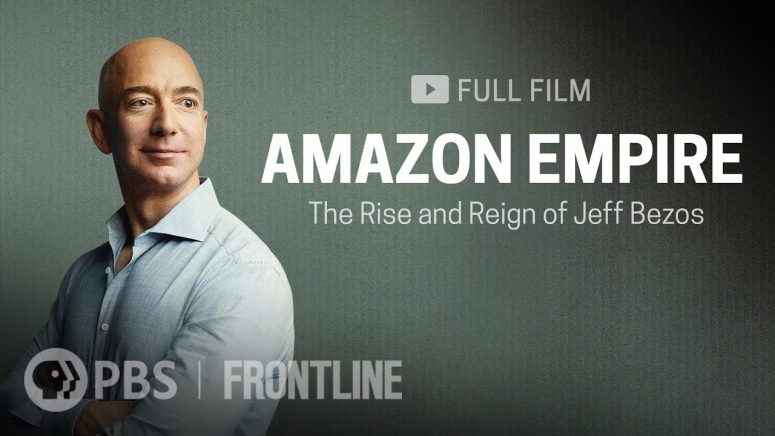
My wife and I (and even some of our young children) watched Amazon Empire: The Rise and Reign of Jeff Bezos recently. It’s a slick documentary that raises some important questions and concerns about the increasingly monopolistic company that keeps prices low (instead of raising them like past monopolies).
The movie wasn’t enough to make me ditch my Amazon Prime or Alexa accounts, especially given how much time and money Amazon has saved my family over the last two decades. That could change, but for now I’ll say: so far, so good. In fact, I’d rather convert to Android and stay with Amazon than stay with Apple and ditch Amazon—I like them that much.
For its slick production and warranted scrutiny, I award it ★★★★☆.
Fun fact: Walmart made twice as much money as Amazon did last year ($512 billion versus $233 billion).

Me at my desk. Photo by Lindsey Snow
I was recently on a podcast to talk about my education and career path towards becoming a full-time freelance writer for the past 16 years. If you have 30 minutes to spare, I hope you enjoy my remarks. If you don’t have that much time, the short answer is lots of luck and persistence. Either way, I’m still pinching myself.
Thanks for having me on the show, Doug.
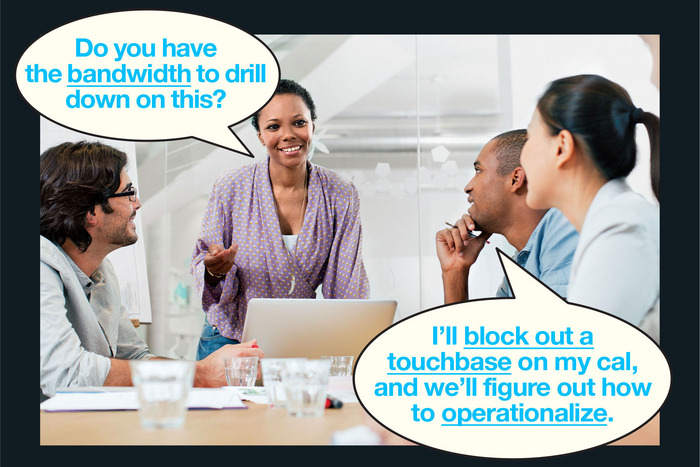
This story by Molly Young on why corporations speak nonsense is the best thing I’ve read in a long-time:
But unlike garbage, which we contain in wastebaskets and landfills, the hideous nature of these words — their facility to warp and impede communication — is also their purpose. Garbage language permeates the ways we think of our jobs and shapes our identities as workers. It is obvious that the point is concealment; it is less obvious what so many of us are trying to hide.
I’m partially biased because I spend a lot of my time helping companies talk like humans instead of broken computers. And I suppose I might not have a job if humans always spoke clearly:
When we adopt words that connect us to a larger project — that simultaneously fold us into an institutional organism and insist on that institution’s worthiness — it is easier to pretend that our jobs are more interesting than they seem. Empowerment language is a self-marketing asset as much as anything else: a way of selling our jobs back to ourselves.
Either way, I think this is a must-read. I enjoyed every word—well, the non-garbage ones at least.

Courtesy Mark Manson
Hope you enjoy these recent long-form articles as much as I did:
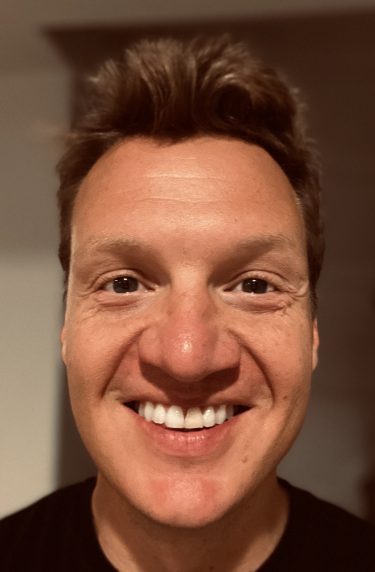 I was recently interviewed by Metro International, the world’s largest free daily newspaper, about my book. This is what I said and thought you might enjoy:
I was recently interviewed by Metro International, the world’s largest free daily newspaper, about my book. This is what I said and thought you might enjoy:
In your book description you say that excessive “internetting,” smartphoning, and social media make us miserable, Why do you think that?
That’s not my opinion. There’s an overwhelming amount of research that proves that virtual socialization is no substitute for the real thing. In fact, it’s even worse since infinite scrolling on screens is either curated highlights that make our own average lives feel worse by comparison, or endless online news that make the world sound a lot more worse and scary than it really is.
In this connected world, do you think you can really manage to live disconnected? How?
As outlined in my book, not only can we successfully disconnect, we can thrive more offline when we find a good balance of it. Smartphones, the internet, and social media aren’t all bad. But they can be if we allow them to be. The trick is setting boundaries in ways that allow them to work for us instead of letting them interrupt and dictate our everyday lives. Continue reading…
 The following is an excerpt from a graduation speech my father Brent Snow gave in 2008 at the University of West Georgia:
The following is an excerpt from a graduation speech my father Brent Snow gave in 2008 at the University of West Georgia:
I grew up in the deep south—deep southern Idaho–so I picked potatoes rather than cotton! My family was very athletic and my older brother Bruce was probably the best all around athlete in Idaho when he was a senior in high school. Being two years younger, I was constantly compared to him in every sport I played as well as in academics. While I was often on the “short” end of those comparisons, I never resented being so. I respected and admired him a great deal and thought it was an honor to be compared to him.
After finishing my Ph.D. in 1979, I became a faculty member at Oklahoma State University. After I had been there for a couple of years, my Father called me and said he was coming to Stillwater and maybe we could go see a couple of basketball games that were on the schedule. This was quite common for us as athletic events were really an excuse to be together, laugh, and for me to be interviewed about how I was doing—was I doing what I should as a Dad?, husband?, and in my work? I loved those interviews with my Father as he would listen and share some advice and wisdom all the while watching a point guard hit a three pointer! You didn’t have to know my Dad very long to realize he was a very wise person.
After one of those games on the way home, we had been talking about my Brother and me always being compared as athletes. I decided to try to be a little clever by putting my Dad on the spot and testing his wisdom:
“Well Dad, how would you compare Bruce and me as athletes?”
“In what sport?” he said –surprising me that he was willing to do so.
“How about baseball?” Continue reading…
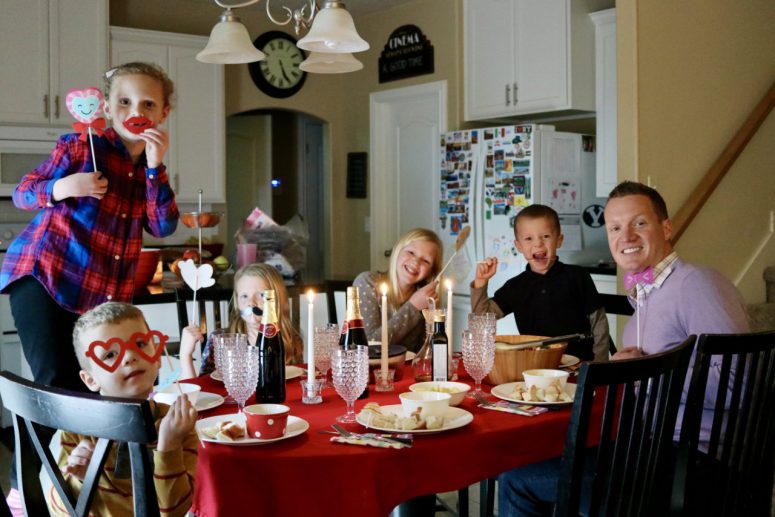
Valentine’s dinner with kids at home beats crowded restaurants
Like any red-blooded American, I grew up observing Valentine’s Day, albeit casually. I traded candies with classmates, chocolates and stuffed animals with crushes, and used to take my wife to “romantic” dinners at crowded restaurants.
It was not an enjoyable experience, especially the latter. A few years after marriage, my wife and I started eating Valentine’s dinner on another day the week to beat the crowds, but that didn’t feel right either.
Then one day nearly 10 years ago, my wife proposed a radical idea: “Why don’t we stay home and cook a nice candlelight dinner with the kids and celebrate all kinds of love, not just romance?” By this point, I didn’t really care since nothing seemed to work. “Sure,” I said. Continue reading…
























 I’ve written thousands of articles since becoming a full time writer 15 years ago. But I’m especially proud of these:
I’ve written thousands of articles since becoming a full time writer 15 years ago. But I’m especially proud of these:

 This is what old people talk about over lunch: how degenerate youth no longer use capitals and punctuation when writing. At least that’s what I did over lunch today with a few middle aged friends.
This is what old people talk about over lunch: how degenerate youth no longer use capitals and punctuation when writing. At least that’s what I did over lunch today with a few middle aged friends.






 A few years ago, I was passing through Marrakech on my way to the Sahara for a magazine assignment. One afternoon, outside La Mamounia Hotel, I was accosted, as all tourists inevitably are, by a “guide.” He was an intense young Berber with penetrating eyes and a brisk stride, one of those canny creatures of the bazaar. He wore a slick black suit.
A few years ago, I was passing through Marrakech on my way to the Sahara for a magazine assignment. One afternoon, outside La Mamounia Hotel, I was accosted, as all tourists inevitably are, by a “guide.” He was an intense young Berber with penetrating eyes and a brisk stride, one of those canny creatures of the bazaar. He wore a slick black suit.

 This week many world and local leaders hit the nuclear response button to a pervasive, flu-like virus that kills a lot of old people and around 10 times the number as the common flu, according to the latest figures.
This week many world and local leaders hit the nuclear response button to a pervasive, flu-like virus that kills a lot of old people and around 10 times the number as the common flu, according to the latest figures.

 The following was written
The following was written 



 I was recently interviewed by
I was recently interviewed by  The following is an excerpt from a graduation speech my father Brent Snow gave in 2008 at the University of West Georgia:
The following is an excerpt from a graduation speech my father Brent Snow gave in 2008 at the University of West Georgia: